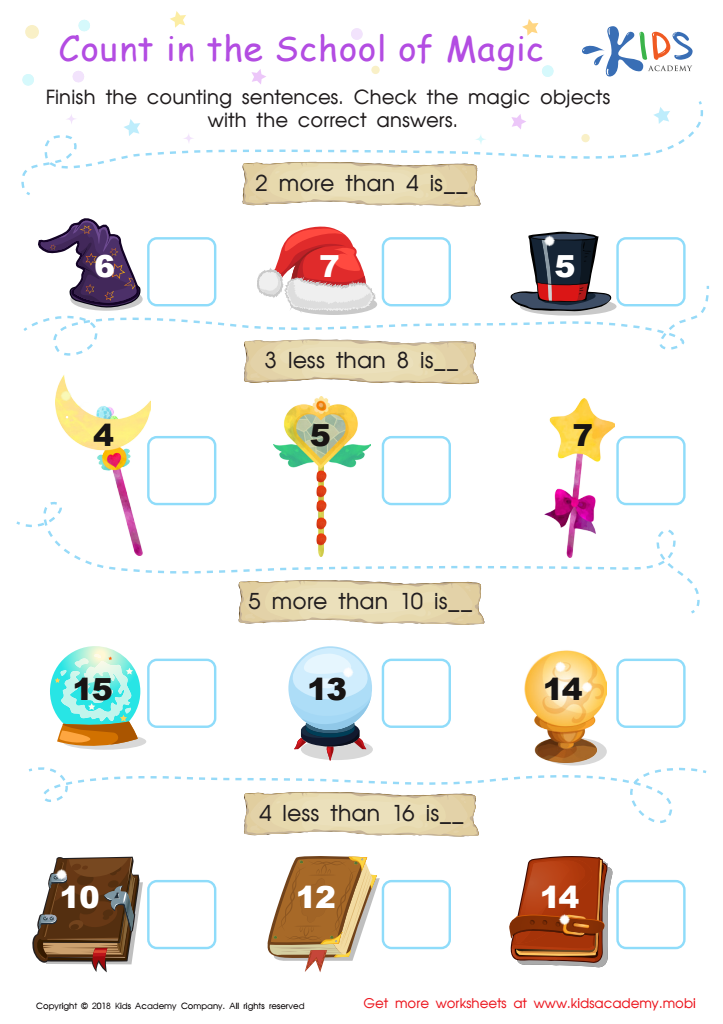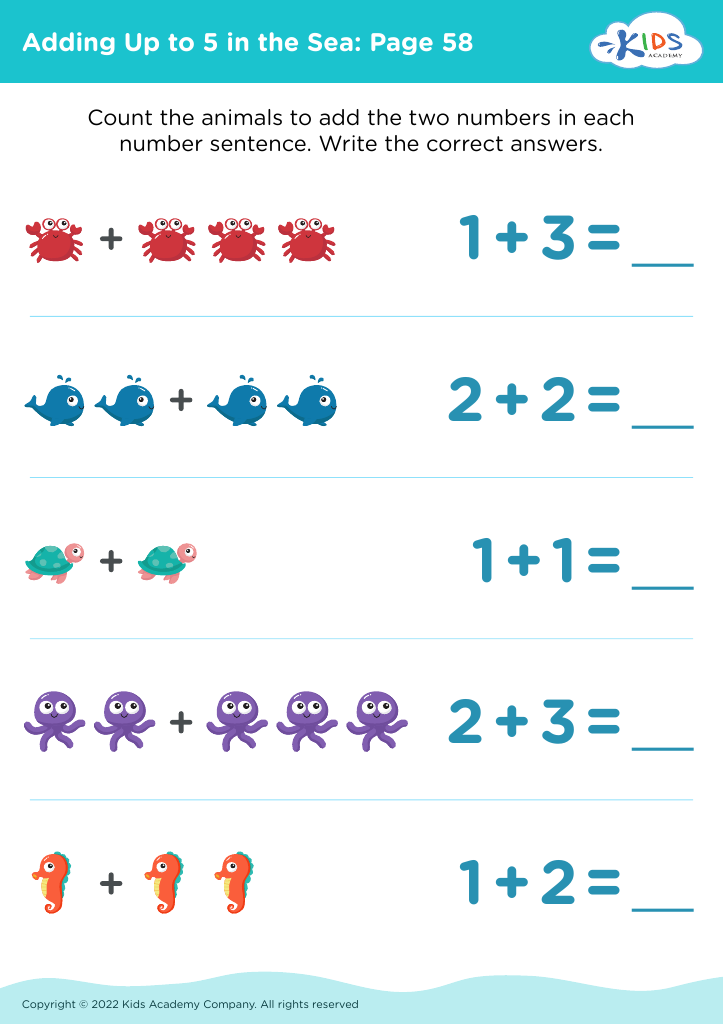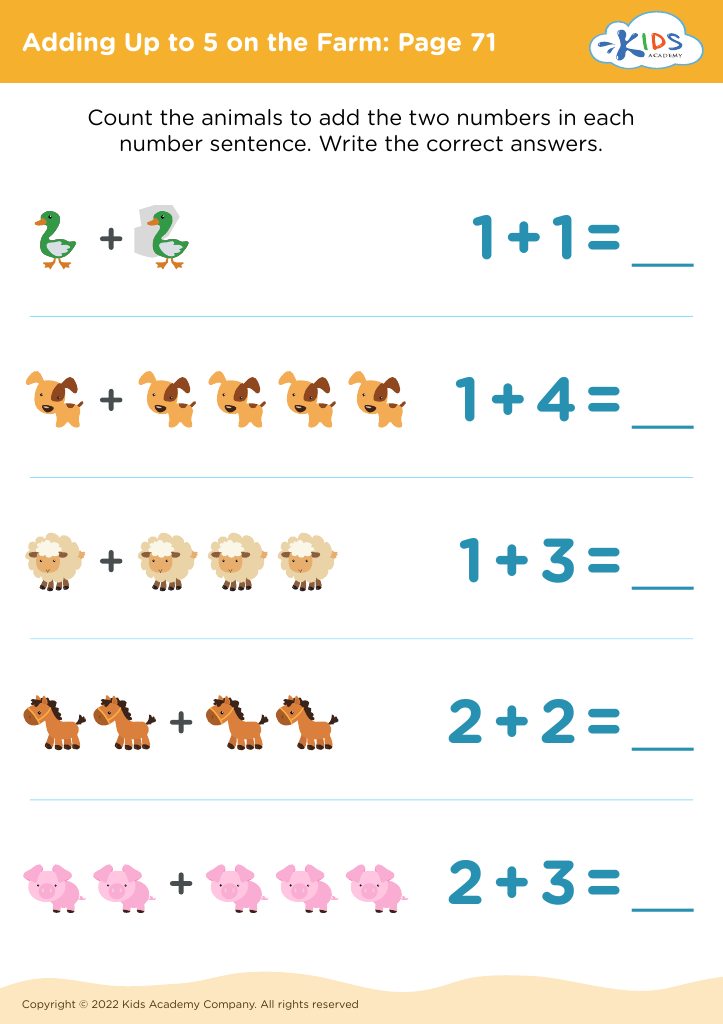Observational skills Addition Worksheets for Ages 5-6
3 filtered results
-
From - To
Boost your child's early math abilities with our "Observational Skills Addition Worksheets for Ages 5-6". These thoughtfully crafted worksheets blend fun illustrations with engaging exercises to nurture keen observational skills alongside basic addition. Each activity is designed to help young learners identify patterns, differences, and similarities while practicing addition, fostering the development of critical thinking and attention to detail. Perfect for classroom use or at-home practice, these printable worksheets will guide your child on a stimulating educational journey, preparing them for more advanced math concepts. Encourage your child's love for learning with our expert-designed worksheets today!


Count in the School of Magic Worksheet
Observational skills are vital for the developmental growth of children aged 5-6, as they provide a foundational capacity for learning and comprehension. During this formative period, children are highly inquisitive and eager to explore their surroundings. Strengthening their observational skills helps improve their attention to detail, memory, and analytical thinking. When parents and teachers emphasize and nurture these skills, children learn to notice patterns, similarities, and differences, which are crucial for early academic success, especially in subjects like math and science.
For example, activities that hone observational skills can enhance a child’s ability to discern numerical quantities and basic arithmetic, the essence of observational additions. Recognizing these early can prevent future learning gaps. Beyond academics, these skills foster better problem-solving abilities and logical reasoning, essential for everyday decision-making.
Furthermore, strong observational skills contribute to social development. By carefully observing social cues and peer interactions, children build empathy and improve their communication skills. Encouraging keen observations ensures that children become more sensitive and adapt adeptly to their environment. Imbibing this trait early promotes lifelong learning and curiosity, making them more resourceful and independent individuals. Therefore, parents and teachers should prioritize cultivating robust observational skills at this age.



 Assign to My Students
Assign to My Students
















